On July 15, 2025, the Dhaka University (DU) campus descended into chaos as Bangladesh Chhatra League (BCL), the student wing of the then-ruling Awami League, launched a day-long series of violent attacks on student protesters demanding reforms to the quota system in government jobs.
The clashes, marked by extreme brutality, left over 400 students injured across the country, with more than 300 of them hurt on the DU campus alone.
The violence unfolded just a day after former Prime Minister Sheikh Hasina made controversial remarks questioning whether descendants of Razakars—collaborators of the Pakistani army during the 1971 Liberation War—should receive quota benefits if those of freedom fighters were excluded.
The comment sparked outrage among students, many of whom chanted slogans like “Cheyechhilam odhikhar, hoye gelam Razakar” ("We asked for rights, got labeled as Razakar"). The situation intensified when Awami League General Secretary Obaidul Quader warned of consequences, and BCL President Saddam Hossain openly declared they would "face the protesters on the field."
On July 15, as protesters under the banner of the Anti-Discrimination Student Movement gathered at Raju Memorial Sculpture around noon to voice their opposition, BCL supporters positioned themselves across campus.
When a group of protesters went to Bijoy Ekattor Hall to rally more students, BCL activists began throwing bricks and flower pots at them. Soon, the violence escalated as BCL members from five other dormitories joined the attack, chasing and beating students—many of them female—across the DU campus using sticks, iron rods, and helmets for protection.
Even the injured were not spared. That evening, BCL activists reportedly stormed Dhaka Medical College Hospital (DMCH) and the then Sheikh Hasina Burn Institute, where wounded protesters were receiving treatment, assaulting them again and hurling crude bombs in front of Shahidullah Hall. Hasnat Abdullah, a coordinator of the movement, said over 500 students had been attacked, calling the incident "a pre-planned assault" that the police did nothing to prevent.
Similar violent incidents occurred across the country. At Jahangirnagar University, protesters were attacked twice—once in the evening and again at midnight in front of the vice-chancellor’s residence. Despite police presence, BCL members and outsiders stormed the sit-in protest and threw bricks even at the VC’s house. In response, thousands of general students resisted, forcing the attackers to flee the campus.
At Eden Mohila College, female BCL members attacked protesting students and locked the gates to prevent them from leaving. Students eventually broke through and headed towards DU. Jagannath University saw at least five injuries in clashes. At Chattogram University and Rajshahi University, BCL attacked protesters multiple times. In Jashore’s MM College, a rally approaching the DC office was violently disrupted.
In protest of the violence, students at Shahjalal University of Science and Technology submitted a memorandum to university authorities demanding punishment for the attackers. Students from several private universities also blocked major roads in Dhaka, while institutions like Cumilla University, Khulna University, and KUET held rallies and processions.
Later that night, DU Vice-Chancellor Professor ASM Maksud Kamal held an emergency meeting with hall provosts and instructed them to stay in dorms overnight to ensure student safety. Meanwhile, from around 10 PM, BCL activists reportedly went hall to hall, searching students’ phones and beating those suspected of being involved in the protests.
At 9:30 PM, movement leader Nahid Islam condemned the attacks and called for mass protest rallies at all campuses nationwide on July 16 at 3 PM. He also demanded a public apology from Sheikh Hasina for her remarks, stating, “We reject and condemn the Prime Minister’s statement.”
The attacks of July 15 have since been widely condemned by civil society and student organizations. The coordinated nature of the violence, alleged complicity of law enforcement, and the brutality inflicted on unarmed student protesters marked the day as one of the darkest in recent campus political history in Bangladesh.


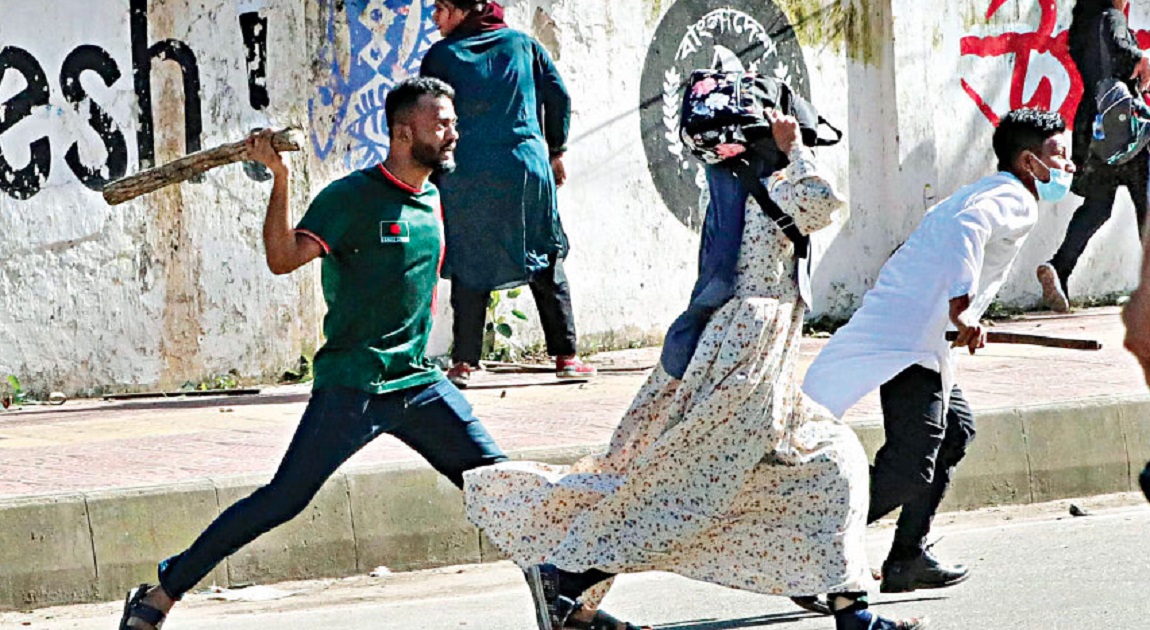

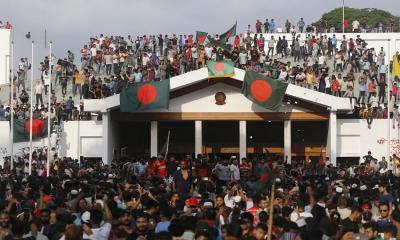
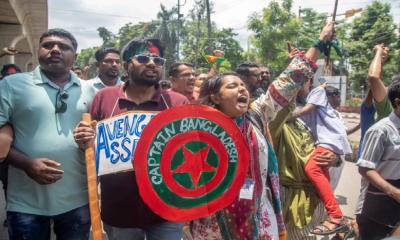
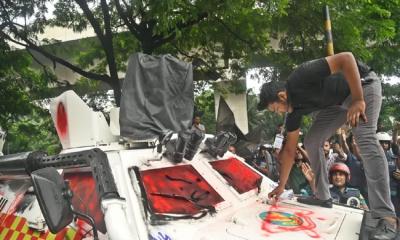
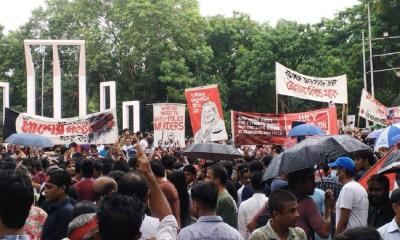
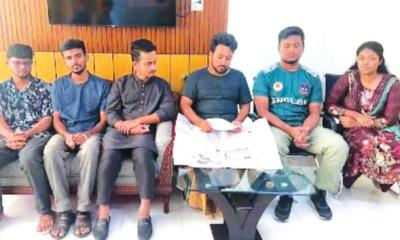
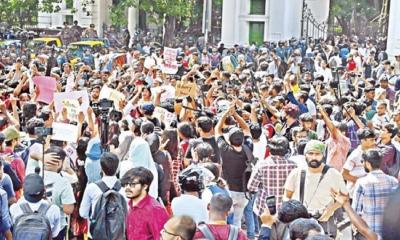




-20260226080139.webp)






-20260225072312.webp)










-20260219054530.webp)
-20260224075258.webp)





-20260221022827.webp)